Action Chairs
Peter Knight
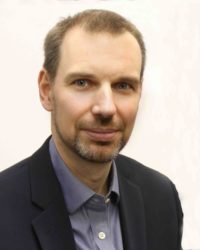
(Action Chair)Peter Knight is a professor of American Studies at the University of Manchester, UK, where he is currently chair of the department of English Literature, American Studies and Creative Writing. He is the author of Conspiracy Culture: From the Kennedy Assassination to The X-Files (2000) and The Kennedy Assassination (2007), as well as the editor […]
Michael Butter
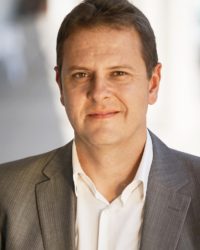
(Action Vice Chair)Michael Butter has been a Professor of American Literary and Cultural History at the University of Tübingen since 2014. He received his Ph.D. from the University of Bonn in 2007 and his Habilitation from the University of Freiburg in 2012. He is the author of four monographs: The Epitome of Evil: Hitler in American Fiction, […]
Members
Filter:
Aida Džanović

Aida Džanović is a researcher from Sarajevo and a collaborator on many international projects. She received an M.A. in political science from the University of Sarajevo. She is an author of many research articles published in Bosnia and Herzegovina and Serbia. The focus of her research is the European migration policy.
Alejandro Romero-Reche
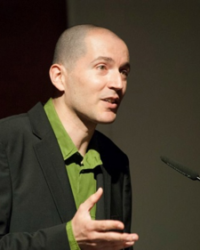
Alejandro Romero-Reche is a lecturer in Sociology at the University of Granada, Spain. He teaches Contemporary Social Theory, Philosophy of the Social Sciences, and Electoral Analysis. He has published several articles and book chapters on the sociologies of knowledge, humor, and leisure. As a comic writer, he won the Injuve Award for a short story […]
Aleksandra Cichocka
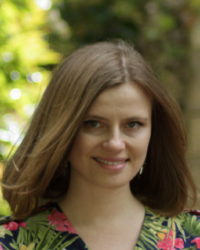
Aleksandra Cichocka is a lecturer in Political Psychology at the University of Kent, where she leads the Political Psychology Lab and the M.Sc. in Political Psychology. She received her Ph.D. from the University of Warsaw and was a Fulbright Fellow at New York University. She is a member of the Governing Council of the International […]
Alexander Libman
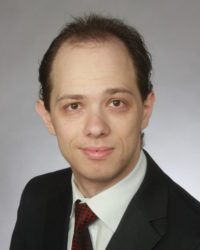
Alexander Libman is a professor of social sciences and eastern-European studies at the Institute of Sociology of the Ludwig Maximilians University of Munich. An economist by training, he worked at the intersection between economics, political science, and sociology in the last years. He obtained his Ph.D. degree from the University of Mannheim and, before joining the […]
Alfred Moore
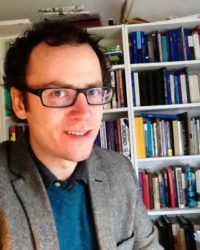
Alfred Moore is a research fellow at CRASSH at Cambridge University, where he works on the Leverhulme funded project Conspiracy and Democracy (RP2012-CO17). He writes on political theory, democracy, and the politics of expertise. He has taught philosophy at University College Cork, was a Marie Curie Research Fellow at the University of British Columbia, and was a […]
Aline Schlaepfer
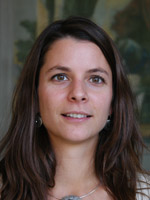
Aline Schlaepfer holds a Ph.D. in Middle Eastern Studies from the University of Geneva, where she has been teaching as maître-assistante since 2012. Between 2008 and 2009, she was a visiting research student at the Hebrew University of Jerusalem and at the School of Oriental and African Studies in London. A postdoctoral fellowship with the […]
Alp Yenen

Alp Yenen is a senior assistant lecturer in Middle Eastern Studies at the Department of Social Sciences at the University of Basel. He studied History and Culture of the Middle East (Turkish, Ottoman, and Iranian Studies), Political Science, and Economic Geography at the Ludwig Maximilian University of Munich. He received his Ph.D. from the University of Basel. […]
Anastasia Iliadeli

Anastasia Iliadeli is a political scientist. She holds a Ph.D. in Comparative Politics from Aristotle University of Thessaloniki (AUTh). She has also completed two master’s degrees; one at AUTh in Political Analysis and one at LSE in Comparative Politics. The domains of interest that she focuses on include the research of extreme right, populism, antisemitism, […]
Anastasia Kafe

Anastasia Kafe has obtained her Ph.D. in Political Science from Panteion University, Greece, and is a researcher at the university’s Centre for Political Studies. She has participated in several research programs including the “Designing & Operating an Infrastructure for the Empirical Inquiry of Political & Social Radicalism in Greece” – THALIS project (EU Framework Program), the […]
Anastasiya Astapova
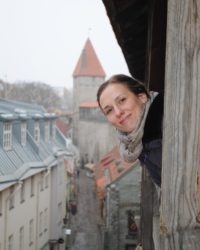
Anastasiya Astapova is a research fellow for Estonian and Comparative Folklore at the University of Tartu. She holds a Ph.D. in Philology from the Russian Academy of Sciences and a Ph.D. in Folklore from the University of Tartu. Her research interests are based on fieldwork she conducts in Belarus, Estonia, and Russia and include different […]
André Krouwel
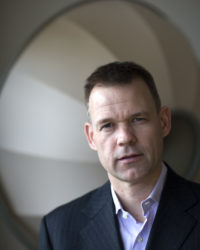
André Krouwel teaches comparative political science and communication science at the Vrije Universiteit Amsterdam and is the founder of Kieskompas (Election Compass) – a developer of online Vote Advice Applications, with which data on party positions and voter opinions is collected. Krouwel’s research focuses on public opinion and politically relevant sentiments, voting behavior, political parties, and […]
Andreas Önnerfors

Dr. Andreas Önnerfors is an associate professor in the history of sciences and ideas at the University of Gothenburg, Sweden. His main research areas are the cultural history of eighteenth-century Europe with a focus on Swedish-German relations, press history, and organized sociability, in particular, secret societies and freemasonry. He also works on the rhetoric of […]
Andreas Ventsel
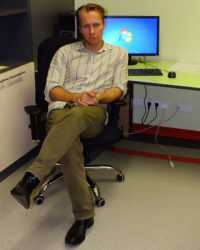
Andreas Ventsel defended his Ph.D. thesis on semiotic theory of hegemony at Tartu University, Department of Semiotics in 2009. Currently, he is working in the same institution as a senior researcher. He has been a visiting researcher at Tbilisi Ivane Javakhishvili State University, Georgia, and has given lectures at the University of Turin, Italy, as […]
Andrew McKenzie-McHarg

Andrew McKenzie-McHarg is a historian who studied in Berlin and Erfurt and who is currently part of the Conspiracy and Democracy Project based at the University of Cambridge. His interests extend from anti-Jesuit rhetoric in the Early Modern Period to radical streams of thought in late Enlightenment Germany. They also encompass the emergence of the […]
Annika Brunck

Annika Brunck currently works as an Assistant Professor at the Institute of American Studies at the University of Tübingen, Germany. She is a member of COST Action 15101 COMPACT (“Comparative Approaches to Conspiracy Theories”) and also served as the Action’s Grant Manager in its first year. Her dissertation project is entitled “Fighting ‘the Evil Scourge […]
Annika Rabo
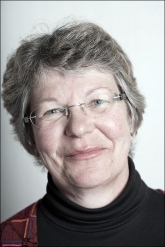
Annika Rabo is a professor of Social Anthropology at Stockholm University.
She received her Ph.D. in Social Anthropology in 1986 after completing a thesis on the political and social effects of a gigantic irrigation scheme along the Euphrates in northeast Syria. Since the late 1970s, she has conducted fieldwork in various parts of the Middle East, […]
Anthony Lantian
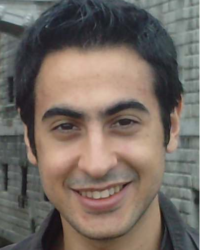
Anthony Lantian is an Associate Professor at the UFR Sciences Psychologiques et Sciences de l’Éducation (SPSE) at the Université Paris Nanterre. His research interests lie in the origins, functional roles, and social consequences of beliefs that people hold about the world. More specifically, his research focuses on belief in conspiracy theories as well as beliefs […]
Asbjørn Dyrendal
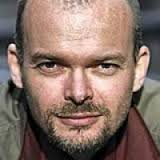
Asbjørn Dyrendal is a professor in the history of religion at the Norwegian University of Science and Technology (NTNU). His research is about contemporary religion, its different expressions and conditions, with a sideways glance at questions of relevant theory or method. The religious expressions cover the spectrum from “fundamentalism” and “New Age,” to Satanism and […]
Bakar Berekashvili
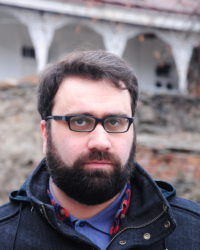
Bakar Berekashvili (1983) is a Lecturer in Political Science at the Georgian American University in Tbilisi. He studied politics, sociology, philosophy, and history in Slovenia, Austria, the Czech Republic, and in Poland. He has also completed several research stays at various academic institutions in Europe, including the Spanish National Research Council in Madrid and the […]
Barbara De Poli
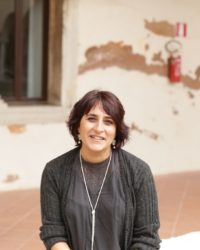
Barbara De Poli teaches contemporary history of Islamic countries and political thought of Islamic countries at Ca’ Foscari University, Venice. She is the scientific coordinator of the Center for Contemporary Middle East Studies (CEM) at the same university, and board member of the Centre for Human Rights Studies (CESTUDIR). Her main field of research are […]
Ben Carver

Ben Carver teaches literature and cultural theory at Aarhus University. Broadly defined, his research area is the cultural history of speculative fiction in the 19th and 20th centuries. He has written a monograph for Palgrave Macmillan, Alternate Histories and Nineteenth-Century Literature: Untimely Meditations in Britain, France, and America, of which Fredric Jameson writes: “The counterfactual […]
Bernardo (Dov) Winer
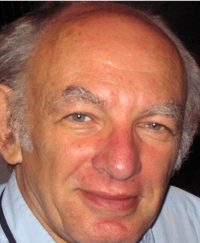
Dov Winer is a psychologist (Hebrew University of Jerusalem) who specialized in Online Education and Training (University of London). His professional activities focus on the application of ICT in education and cultural heritage. He founded the Israel Internet Society and participates in the Steering Committee of the EUN Association of European Ministries of Education for […]
Biljana Gjoneska

Biljana Gjoneska, MD, PhD, is a national representative and research associate from the Academy of Sciences and Arts of North Macedonia. She holds a medical degree from “Ss. Cyril and Methodius” University in Skopje, and a doctoral degree in psychology and social neuroscience “Sapienza” University of Rome. Her latest research explorations are associated with her […]
Björn Vollan

Björn Vollan is Robert Bosch junior professor at the Philipps-Universität Marburg. His research agenda combines methods and topics from behavioral economics, environmental economics, and development economics. He has extensive experience in designing and conducting laboratory and field experiments, particularly with the rural population in sub-Saharan Africa and Asia, testing various questions related to pro-social and […]
Chad E. Brack

Chad E. Brack received his master’s degree in Strategic Security Studies from National Defense University in 2015. His thesis, “The Conspiracist Style in American Extremism: An Education-Based Approach for Combating Conspiracism,” discussed the role of conspiracy theories in some extremist ideologies and possible ways to mitigate conspiracist ideation in the United States military through professional […]
Clare Birchall

Clare Birchall is a Senior Lecturer in Contemporary Culture at King’s College London. She is the author of Knowledge Goes Pop: From Conspiracy Theory to Gossip (Berg, 2006) and co-editor of New Cultural Studies: Adventures in Theory (Edinburgh University Press, 2007). She has also edited special issues of the journals Theory, Culture and Society and […]
Claus Oberhauser
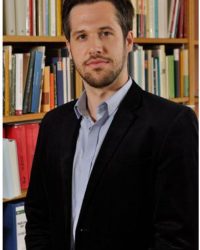
Claus Oberhauser teaches History and Didactics of History at the University of Innsbruck and the Pedagogical University of Tyrol, Austria. He is the author of Die Verschwörungstheoretische Trias: Barruel – Robison – Starck (2013) as well as the editor of Hinter den Kulissen: Beiträge zur historischen Mythenforschung (2012) and Juden und Geheimnis (2015). Both include […]
Corneliu Pintilescu
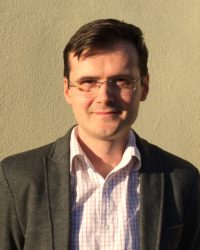
Corneliu Pintilescu is a researcher at the Institute of Social Sciences and Humanities Sibiu of the Romanian Academy. He has a Ph.D. in history from the “Babeş-Bolyai” University, Cluj-Napoca with a dissertation entitled: Judicial Mechanisms of Political Repression in Romania (1948–1956). Case Study: The Military Tribunal in Cluj. He authored two books and published over […]
Dana Crăciun
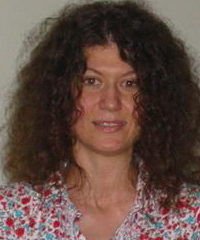
Dana Crăciun teaches 20th-century literature and American Studies at the West University of Timișoara. Her other research interests include post-9/11 crises of representation, critical theory, and, more recently, conspiracy theories.
Daniel Cohnitz

Daniel Cohnitz (born in 1974) holds the chair for theoretical philosophy at Utrecht University. In his research on conspiracy theories, he focusses on the social epistemology of conspiracy theories, e.g. the effect that belief in conspiracy theories has on epistemic trust relations. Cohnitz defended his dissertation on Thought Experiments in Philosophy (Gedankenexperimente in der Philosophie) […]
Daniel Jolley
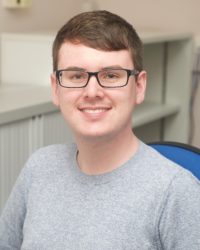
Daniel Jolley is an early-career social psychologist at Staffordshire University, UK, where he is currently a Lecturer in Psychology. His research has been examining the social consequences of conspiracy theories, specifically using experimental methods – such as uncovering the impact of exposure to conspiracy theories on political, environmental, and health-related behavioral intentions. In a similar […]
David Harper
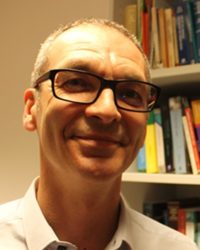
David Harper is Reader in Clinical Psychology at the University of East London where he is also Programme Director (Academic) of the Professional Doctorate in Clinical Psychology. He has a longstanding interest in unusual experiences and beliefs in both clinical and non-clinical populations with a focus on the social context of paranoia and conspiratorial belief. […]
Doğan Gürpınar
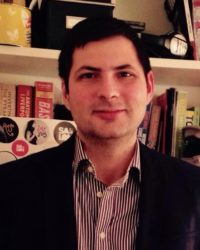
Doğan Gürpınar is an associate professor at the Istanbul Technical University (İTÜ). He is a historian specialized in the late Ottoman and contemporary Turkish historiography, thought, and ideas. He is interested in ideologies and mental structures prevailing in Turkey probing them in a continuum in the course of the making of modern Turkey. His interest […]
Eduardo Camilo
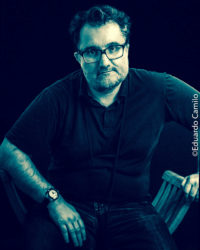
Eduardo Camilo is a professor of semiotics, advertising, and strategic communication at the Department of Communication and Arts, University of Beira Interior, Portugal. He graduated in Communication Studies from the University Nova de Lisboa and holds a Ph.D. and Habilitation in Communication Studies from University da Beira Interior. He was a visiting Professor at the University […]
Eirikur Bergmann

Eirikur Bergmann is a professor of politics and director at the Centre for European Studies at Bifrost University in Iceland. He mainly writes on nationalism, populism, European integration, Icelandic politics, and participatory democracy. Further afield are couples of novels published in Icelandic. Based on a nationwide election in 2010, Bergmann served as a member of Iceland’s […]
Estrella Gualda

Estrella Gualda is a professor of Sociology at the Universidad de Huelva, Spain, where she is the director of the Social Studies and Social Intervention Research Centre. Throughout her career, Professor Gualda has published several books, book chapters, and scientific articles in the fields of sociology, social exclusion, migrations and minorities, cross-border issues, social networks, social capital, and social media. She is currently working on the study […]
Eva Horn
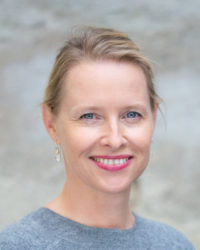
Eva Horn is a Professor of Modern German Literature and Cultural Studies at the Department of German, University of Vienna, Austria. One of her major fields of research is the notion of political secrecy and the modes of its representation in fiction. She has published about the theory and practice of state secrecy in the […]
Eva Kimminich

Eva Kimminich is professor of Cultural Studies and Cultural Semiotics at the University of Potsdam, where she holds the Chair of Romance Cultures. She is responsible for the master programs Applied Cultural Studies and Cultural Semiotics and International Applied Cultural Studies and Semiotics. Her main research interests encompass cultural and pop-cultural aspects, particularly youth and […]
Evripides Zantides
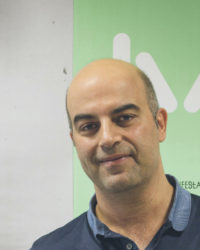
Evripides Zantides is an Associate Professor of Graphic Communication and Head of the Department of Multimedia and Graphic Arts at the Cyprus University of Technology. His professional activities include the presentation of research papers at a number of journals and international conferences on semiotics, graphic design education, typography, and visual communication, as well as his participation, […]
Filippos Tymvios
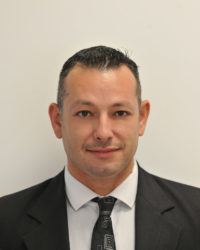
Filippos Tymvios graduated from the Physics Department of the National And Kapodistrian University of Athens in 1994. He received his M.Sc. in Environmental Physics in 1998 and his Ph.D. in Solar Radiation Modeling in 2007 from the same university. He also holds an M.Sc. in Public Sector Management from CIIM (2012). He is a certified […]
Franciszek Czech

Franciszek Czech, Ph.D., is a sociologist and political scientist at the Department of Intercultural Studies, Jagiellonian University, Cracow, Poland. In his research on conspiracy theory, he focuses on its political dimensions as part of political culture, populism, critical citizens’ attitude, and citizen journalism phenomenon as well as media discourses. He authored two books: Nightmare Scenarios: […]
Gintaras Aleknonis
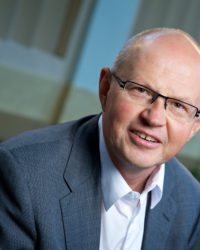
Gintaras Aleknonis is a professor at and the director of the Institute of Communication at Mykolas Romeris University, Vilnius, Lithuania. His research interests include media and democrac, as well as the relationship between the media and the state. These topics are discussed in his book The New Censorship (2011, in Lithuanian). He is the author […]
Giulia Napolitano

Giulia Napolitano is a Ph.D. candidate at the Cologne Centre for Contemporary Epistemology and the Kantian Tradition (CONCEPT) at the University of Cologne. Her main research interest is in social epistemology, particularly philosophical problems to do with testimony, disagreement, expertise, and epistemic authority. She is currently working on the topic of conspiracy theories, trying to […]
Grigorij Mesežnikov
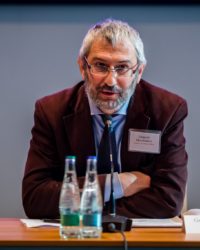
Grigorij Mesežnikov, president of the Institute for Public Affairs (IVO), Bratislava, Slovakia, is a graduate of the Faculty of Arts at Moscow State University (MGU). Between 1983 and 1993, he worked at Comenius University in Bratislava, from 1993 to 1997, he served at the Political Science Institute at the Slovak Academy of Sciences. He is a […]
Helena Pires
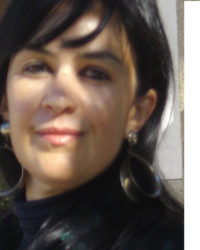
Helena Pires is an Assistant Professor in the Communication Sciences Department as well as an integrated Member of the Communication and Society Research Centre at the University of Minho. She completed her Ph.D. in Semiotics of Communication at the University of Minho in 2007. Her research interests lie in urban communication, visual semiotics, advertising, landscape, […]
Henry M. Taylor
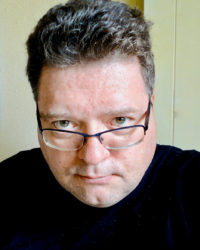
Henry M. Taylor is Privatdozent (P.D., Private Lecturer) in Film and Media Studies at the University of Konstanz and has recently published his second book, Conspiracy! Theorie und Geschichte des Paranoiafilms (Schüren, 2018) on conspiracy and paranoia in film and television. He previously obtained his Bachelor’s degree in Film and History at the University of […]
Holger Mölder
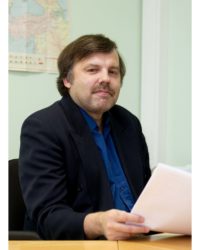
Holger Mölder is an associate professor in International Relations at the Department of Law, Tallinn University of Technology and Head of the Master’s Program in International Relations and European-Asian Studies. He defended his Ph.D. on Political Sciences in 2010 at the University of Tartu and his dissertation examined cooperative security issues in the modern security […]
Hulda Thórisdóttir
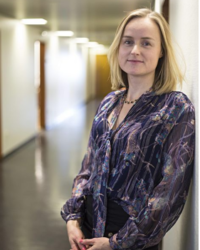
Hulda Thórisdóttir is an Associate Professor in the Psychology and Political Science Departments at the University of Iceland. She has a Ph.D. in Social Psychology from New York University (2007). Her research centers on political ideology, its structure, causes, and consequences. In her doctoral research, initiated in the months after the 9/11 attacks, she used […]
Ilya Yablokov
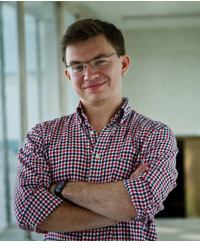
Dr. Ilya Yablokov is a Teaching Fellow in Russian politics, history, and culture at the University of Leeds, UK. He received his M.A. with Distinction in Nationalism Studies from Central European University, Budapest, and his Ph.D. in Russian Studies from the University of Manchester, UK. His research interests include conspiracy theories, nation-building, and politics in […]
Iris Žeželj
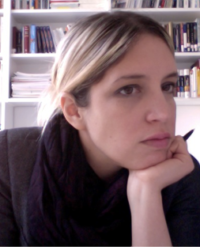
Iris Žeželj is an Assistant Professor of Social Psychology at Belgrade University. She gained her Ph.D. in 2011. Her main area of interest is social cognition, specifically biases in memory, self-knowledge, and group perception, as well as intergroup relations. She has led and co-led international research projects on attitude change, intergroup relations, and social identity. Iris […]
Isabel Marcos

Isabel Marcos is a Senior Research fellow of CICS.NOVA – Interdisciplinary Centre of Social Sciences, FCSH at the Universidade Nova de Lisboa. She received a Ph.D. in Semiotics (1996) from the University of Aarhus (Denmark) and a Ph.D. in Communication Sciences (2000) from the New University of Lisbon (Portugal). Her major publications are: Espace, sémiotique et […]
Iselin Frydenlund
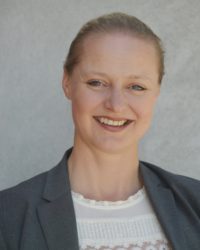
Iselin Frydenlund is a postdoctoral fellow in religious studies at MF, Norwegian School of Theology and affiliate to the Peace Research Institute Oslo (PRIO). She holds a Ph.D. in the history of religion from the University of Oslo (2011). She specializes in Buddhism, politics, and violence, working specifically with radical Buddhist groups in Sri Lanka […]
Ivan Brlić
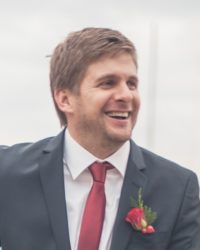
Ivan Brlić is a senior research assistant at the Ivo Pilar Institute of Social Sciences Regional Centre in Gospić, Croatia. He studied history and informatics at the University of Rijeka in 2007 and earned his doctoral degree in history (his doctoral thesis was titled “Civil Organizations in Lika Region from 1860 until 1940”). During the […]
Ivelina Ivanova

Ivelina Ivanova is a senior research fellow at the Institute for Studies in Societies and Knowledge, Bulgarian Academy of Science. She has published two books and a number of papers on theory of history, philosophy of history, conceptual history, the legitimiation of historical knowledge, and its social and political uses. Ivelina Ivanova has been a […]
Jakov Bojovic

Jakov Bojovic is a researcher at the Center for European Union Research, a research institute of the Central European University. His fields of interest are public policy, EU governance, policy communications, and policy entrepreneurship. He is a CEO of the Madrid-based consultancy Centre for Policy Writing. Within conspiracy theories as a field of study, Mr […]
Jan Rathje
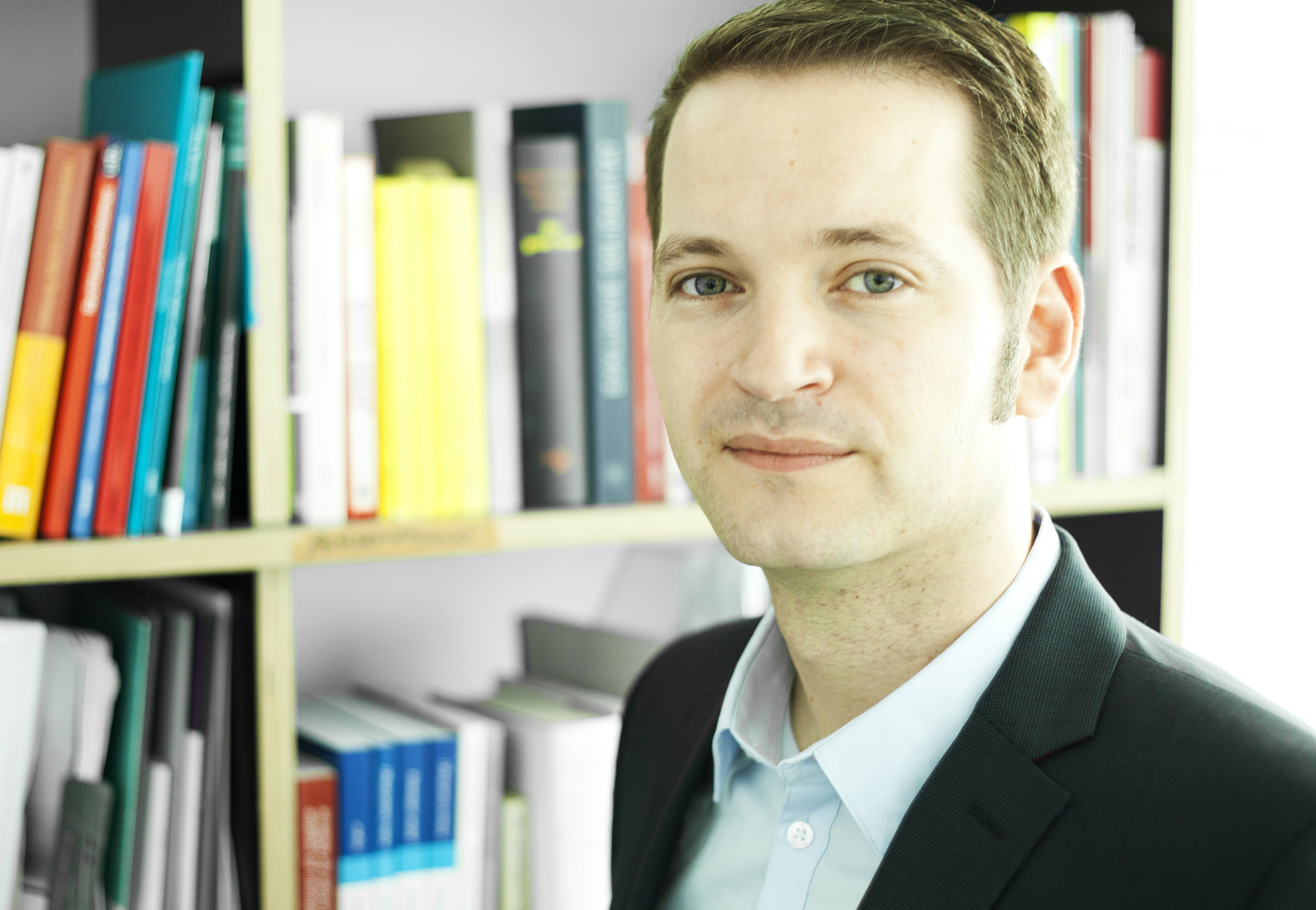
Jan Rathje is a political scientist, focused on political theory, antisemitism and right-wing extremism. He worked in mobile counselling against right-wing extremism in northern Germany before becoming project lead of “No World Order – Acting against conspiracy ideologies” at Amadeu Antonio Foundation in 2015. The project aims at empowering civil-society actors to counter conspiracy ideologies […]
Jan-Willem van Prooijen
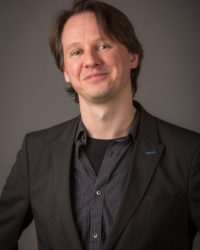
Dr. Jan-Willem van Prooijen is an Associate Professor at VU Amsterdam and a Senior Researcher at the Netherlands Institute for the Study of Crime and Law Enforcement (NSCR). His core discipline is social psychology, and he studies people’s subjective beliefs in conspiracy theories through quantitative research methods. His research focuses on the cognitive, group dynamic, […]
Jaron Harambam
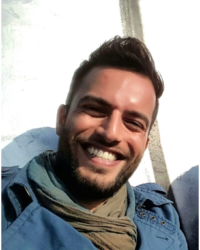
Jaron Harambam is currently working as a Marie Sklodowska-Curie Individual Fellowship postdoctoral researcher at the Institute of Media Studies, KU Leuven Belgium. In this research project, called Lost in an Ocean of Information? Media in the Everyday Life of Conspiracy Theorists, he ethnographically studies what media sources (TV-channels, newspapers, internet sites, blogs, Facebook pages/groups, etc) […]
Jasna Milošević Đorđević
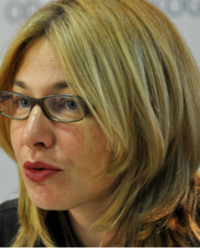
Jasna Milošević Đorđević teaches Social Psychology at the Faculty of Media and Communication (Singidunum University), Belgrade, Serbia and the University of Montenegro (Podgorica). She is also a Research Associate at the Institute for Political Studies and research consultant in Ipsos Strategic Marketing. Her M.A. and Ph.D. thesis were related to voting behavior and national identity. She […]
José Rúas-Araújo
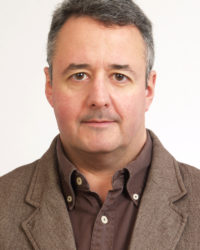
José Rúas-Araújo is a specialist in mass media and associate professor at the Social Sciences and Communication School of the Universidad de Vigo, Spain. He has an experience of more than ten years as a journalist and fifteen as a professor. He holds a PhD in Communication from the Universidad Complutense de Madrid, Spain. His […]
Juha Räikkä

Juha Räikkä is a professor of practical philosophy at the University of Turku, Finland. His research interests include topics such as justice, privacy, forgiveness, remorse, self-deception, just war-theory, equality, burden of proof, and conspiracy theories. Räikkä’s recent publications include two books: Social Justice in Practice (Heidelberg: Springer 2014) and Human Imperfection (in Finnish, 2017). He […]
Juho Ritola
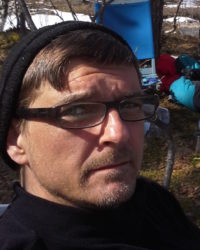
Juho Ritola is a docent in Argumentation Theory. He received his Ph.D. from the University of Turku in 2004 and has worked at universities in Finland, Estonia, and the Netherlands. His main interest lies in the philosophical, especially epistemological, questions of argument and inference. He has published on fallacies, the notion of critical thinking, and […]
Julien Giry
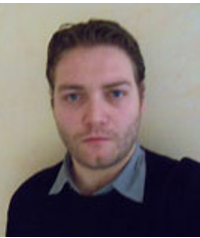
Since 2009, Julien Giry has been working on conspiracy theories mainly in the United States. After a monograph of the LaRouche Movement (2009–2010), he defended a dissertation in political science entitled “Conspiracism in American Politics and Popular Culture. A Sociopolitical Approach of Conspiracy Theories” at the University of Rennes 1 in 2014. He has also […]
Karen Douglas

Karen Douglas is a Professor of Social Psychology at the University of Kent. She studies the psychological factors associated with belief in conspiracy theories and some of the social, political, health, and environmental consequences of belief in conspiracy theories.
Kasper Grotle Rasmussen
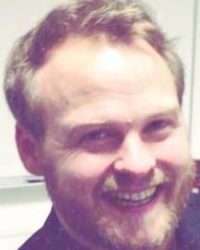
Kasper Grotle Rasmussen is an assistant professor of American History at the Center for American Studies/Department of History at the University of Southern Denmark. His main field of expertise is the history of American foreign relations in the 20th and 21st centuries. He has focused on ideas, decision-making structures and – most recently – emotions, […]
Kateřina Králová
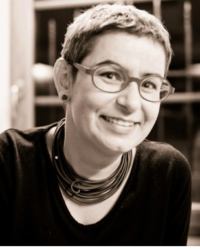
Kateřina Králová is an Assistant Professor in Contemporary History and former Vice-Dean for International Relations (2010–2015) at the Faculty of Social Sciences, Charles University, Prague. In her research, she focuses on reconciliation with the Nazi past, post-conflict societies, memory, and oral history regarding the Holocaust, Greek Civil War, and post-war reconstruction particularly in Greece. In 2016, […]
Kenzo Nera
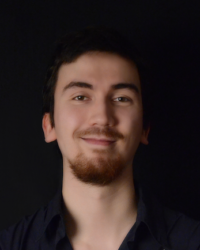
Kenzo Nera is a research fellow at the Université Libre de Bruxelles, in the Center for Social and Cultural Psychology (CeSCuP) where he also received his Master degree from. His PhD thesis is titled “Conspiracy theories and collective identities: a social identity approach of conspiracy theories’ endorsement and debunking”. Relevant publications in the field of […]
Kosta Bovan
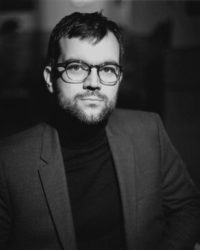
Kosta Bovan is affiliated with the Faculty of Political Science, University of Zagreb. His research interests are political behavior, including political cognition, conspiracy theories, populism, and evolutionary political psychology as well as cultural approaches to politics, such as cultural trauma.
Levente Littvay
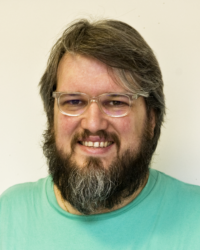
Levente (Levi) Littvay is an Associate Professor of Political Science at the Central European University, Budapest, Hungary, where he teaches M.A. and Ph.D. courses in applied statistics with a topical emphasis on electoral politics, voting behavior, political psychology, and American politics. Furthermore, he is the recipient of CEU’s Distinguished Teaching Award. He received his M.A. […]
Lindsay Porter
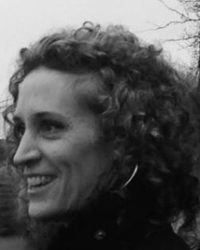
Lindsay Porter is an author and editor specialising in the print and visual culture of the 18th and 19th centuries, with a particular interest in popular perceptions of authority and elitism. Her research interests focus on the relationship between popular beliefs – including rumour, myth, folklore, and collective memory – and political action. Books include […]
Loïc Nicolas
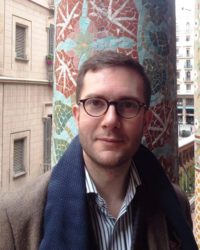
Loïc Nicolas (Ph.D., 2011) is a researcher in Rhetoric and Argumentation at the Université Libre de Bruxelles, Belgium. He is also associated with the research team PROTAGORAS (IHECS). His work focuses on the practice of political discourse, the history of the art of speech, as well as conspiracy theories from a discursive and persuasive perspective. […]
Maarten Boudry

Maarten Boudry (1984) is a postdoctoral fellow of the Flemish Fund for Scientific Research (FWO) at Ghent University. He studied in Vienna (Konrad Lorenz Institute), Boston (Tufts University) and New York (City University of New York). In 2011, he defended his dissertation on pseudoscience: Here Be Dragons: Exploring the Hinterland of Science. He is the […]
Mar Gallego Durán
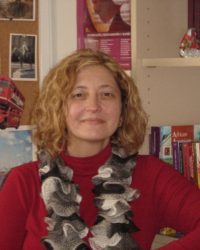
Mar Gallego Durán has taught American and African American Literatures at the University of Huelva, Spain, since 1996. She obtained her Ph.D. degree in 1997 and was awarded fellowships at the Universities of Cornell, Northwestern, and Harvard. She is currently director of the Research Centre on Migrations at the University of Huelva. Her major research […]
Marc van Oudheusden
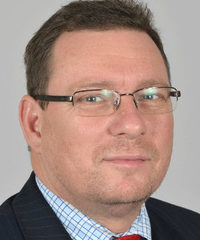
Marc van Oudheusden is a Ph.D. candidate in the Humanities/Middle Eastern Studies department of Leiden University, Netherlands. He graduated in Arabic Language and Studies of Islam, and served a long career in the Dutch Government administration as a civil servant, mainly in the field of security and crisis management. He received a post-graduate education from […]
Mari-Liis Madisson
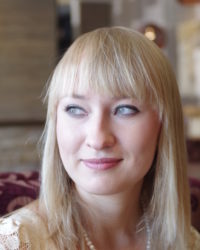
Mari-Liis Madisson received her Ph.D. in Semiotics and Culture Studies from the University of Tartu in 2016. She is a Research Fellow at the Department of Semiotics as well as a Junior Research Fellow at the Institute of Social Studies, Chair of Media and Communication at the University of Tartu. Her research interests lie in […]
Maria Babińska
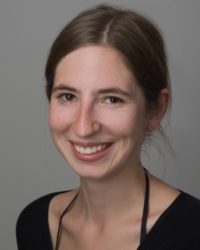
Maria Babińska graduated from the Department of Sociology, University of Warsaw. She is currently working as a junior researcher and PhD student at the Center for Research on Prejudice, Faculty of Psychology, University of Warsaw. Her research focus is the intersection between victimhood based identity, conspiracy beliefs, and populism.
Marios Hatzopoulos
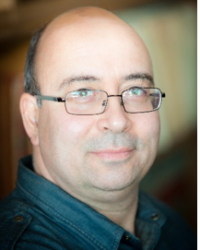
Marios Hatzopoulos is a researcher at the Research Centre for Modern History (KENI) at the Panteion University of Social and Political Sciences, Athens, Greece. As a former student of Anthony D. Smith and as a historian, he specializes on nationalism and national identities in SE Europe. He is interested in Modern Greek and Ottoman history, […]
Mark Anthony Camilleri
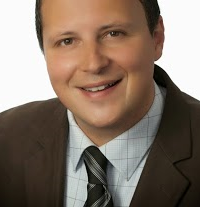
Dr. Mark Anthony Camilleri is a resident academic lecturer in the Department of Corporate Communication. He lectures in an international Masters program run by the University of Malta in collaboration with King’s College, University of London. Mark specializes in marketing communications, research, and evaluation. He finalized his Ph.D. (Management) in three years’ time at the […]
Massimo Leone
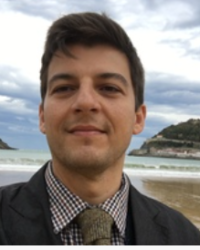
Massimo Leone is a Professor of Semiotics, Cultural Semiotics, and Visual Semiotics at the Department of Philosophy, University of Turin, Italy. He graduated in Communication Studies from the University of Siena, and holds a D.E.A. in History and Semiotics of Texts and Documents from Paris VII, an M.Phil. in Word and Image Studies from Trinity […]
Mathias Persson

Mathias Persson holds a doctoral degree in history of science and ideas from Uppsala University. His dissertation, published in 2009, explores how Sweden was imagined in a major German review journal, Göttingische Anzeigen von gelehrten Sachen, during the latter half of the eighteenth century. Persson has since returned to the topic of how German eighteenth-century […]
Matthew Dentith
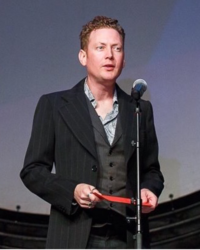
Matthew R. X. Dentith (or M) received their Ph.D. in Philosophy from the University of Auckland, where they wrote their dissertation on the epistemology of conspiracy theories. The author of the first single-author book on conspiracy theories by a philosopher (The Philosophy of Conspiracy Theories (Palgrave Macmillan, 2014)), their current research interest is in developing a framework […]
Maurus Reinkowski

Maurus Reinkowski is a Professor of Islamic and Middle Eastern Studies at the Department of Social Sciences, University of Basel, Switzerland. His field of specialization is the history of the late Ottoman Empire and the modern Middle East. Amongst other subjects, he has published on the early beginnings of the Israel-Palestine conflict, nationalism, and minorities […]
Michael Biddelstone
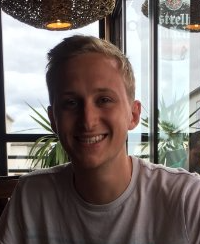
Michael Biddlestone is a PhD candidate at the University of Kent, Canterbury, where he currently works as an Associate Lecturer at the School of Psychology. He received his master’s degree in Applied Social Psychology from the University of Sussex. He has extensive experience with qualitative and quantitative psychological methods and statistics and over one year […]
Michael Wood
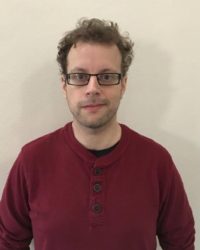
Mike Wood is a lecturer in psychology at the University of Winchester. He studies the psychological factors underlying both general and specific conspiracy beliefs, with a particular focus on how conspiracy theories spread via online communication.
Michał Bilewicz
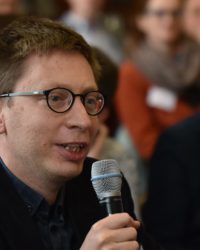
Michał Bilewicz (Ph.D., University of Warsaw) is an Associate Professor of Psychology at the University of Warsaw, Poland, where he chairs the Center for Research on Prejudice. Previously, he was a Fulbright scholar at the New School for Social Research in New York and DAAD post-doctoral fellow at the University of Jena in Germany. His […]
Mitja Velikonja
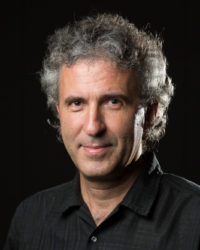
Dr. Mitja Velikonja is a professor for cultural studies and head of the Center for Cultural and Religious Studies at the University of Ljubljana, Slovenia. Main areas of his research include central-European and Balkan political ideologies, subcultures and graffiti culture, collective memory, and post-socialist nostalgia. His last monograph in English is Rock’n’Retro – New Yugoslavism […]
Nahuel Ribke

Nahuel Ribke is a communication and cultural studies scholar at the Tel Aviv University and Seminar Hakibutzim College. He is committed to studying the relationships among media industries, political institutions, and cultural practices. His doctoral thesis examines the emergence and expansion of Globo Television Network during the military regime in Brazil (1964–1985) through the complex […]
Nataša Mišković
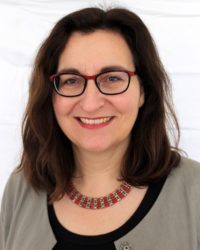
Nataša Mišković is SNSF Professor in Middle Eastern Studies, University of Basel. Her research focuses on the shared history of the Balkans and the Middle East. In the last decade, she has researched extensively on the visual history of Yugoslavia and Turkey, as well as on Yugoslav foreign policy and the non-aligned movement. She is […]
Nebojša Blanuša
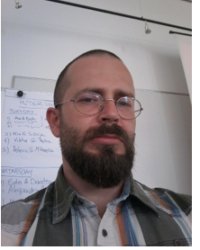
Nebojša Blanuša teaches Social and Political Psychology and Theories of Nationalism at the Faculty of Political Science, University of Zagreb, Croatia, where he is currently chair of the Department of Croatian politics. He is a member of the FP7 project Social Performance, Cultural Trauma and Reestablishing Solid Sovereignties (SPECTRESS), dealing with the formation of conspiracy […]
Nedzma Dzananovic
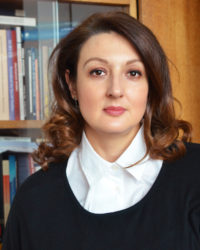
Nedzma Dzananovic is a former diplomat, now professor and researcher at the University of Sarajevo’s Faculty of Political Science. She holds a bachelor degree in political science and Master degree in European studies from London School of Economics and Political Science and University of Bologna, as well as a Ph.D. from the University of Sarajevo. […]
Nico Pytlik
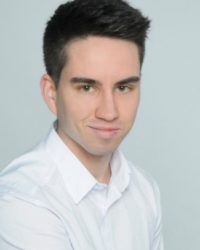
Nico Pytlik is currently a PhD candidate in clinical psychology. He holds a master’s degree in psychology from the Philipps-University Marburg. Previously, his research focused on uncovering the mechanisms underlying conspiracy theory, particularly cognitive bias and information processing. Presently, he is setting his sights on understanding the genesis of schizophrenia in order to elucidate potential […]
Nicola Gess
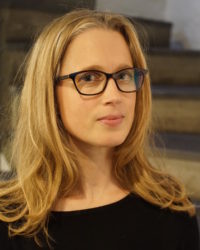
Nicola Gess is a professor of German Literature at Universität Basel. She received her Ph.D. from Princeton University and Humboldt Universität zu Berlin in 2004 and her Habilitation from Freie Universität Berlin in 2012. She is the author of two monographs: Gewalt der Musik: Literatur und Musikkritik um 1800 (2011 in 2nd edition), Primitives Denken: […]
Nicolas Guilhot

Nicolas Guilhot is a research professor at the CNRS (Centre National de la Recherche Scientifique). His work sits at the intersection political theory, the history of political thought, and international relations. His most recent publications include After the Enlightenment: Political Realism and International Relations in the mid-20th Century (Cambridge UP, 2017), The Invention of International […]
Nikola Karasová

Nikola Karasová is a Ph.D. candidate in Contemporary History at the Institute of Social Sciences, Charles University, Prague, Czech Republic. She specializes in modern Greek politics with an emphasis on post-conflict transition, extremism, and populism and published several articles related to these issues. She is interested in studying conspiracy theories that emerged in the public […]
Nils Bubandt
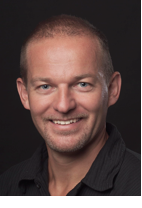
Nils Bubandt is a Professor of Anthropology at Aarhus University and co-editor-in-chief of the journal Ethnos. He is the author of Democracy, Corruption and the Politics of Spirits in Contemporary Indonesia (Routledge, 2014) which analyzes politics and corruption discourses in Indonesia in light of widespread beliefs in (as well as disbelief about) the reality of […]
Ognjan Denkovski
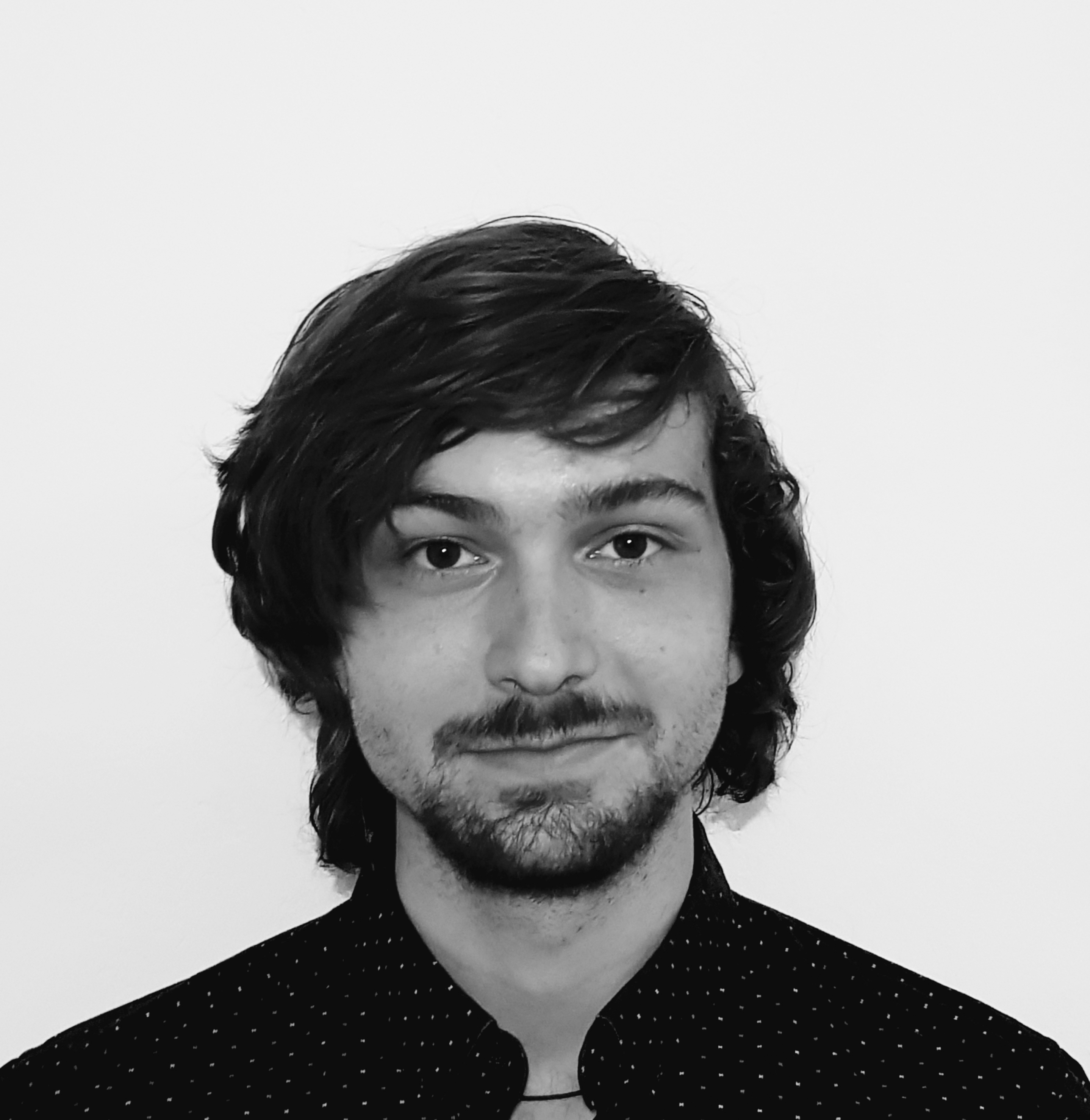
Ognjan Denkovski is a research assistant and lecturer at the University of Amsterdam, where he obtained his MSc in communication science. His research is focused on the intersection between political communication and computational social science, with special emphasis on the use of text-as-data methods and machine learning for large scale analysis of news and elite […]
Olivier Klein
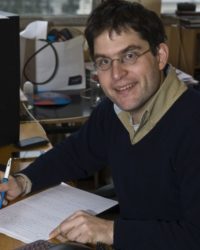
Olivier Klein is a Professor of Social Psychology at the Université Libre de Bruxelles, Belgium. His research interests include collective memory, gender, social stereotypes, and intergroup relations. His work on conspiracy theories relates mainly to the cognitive factors involved in belief and disbelief in information conveyed by the media.
Onoriu Colăcel
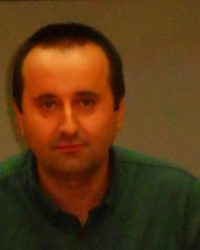
Onoriu Colăcel is a Lecturer in English at Ștefan cel Mare University of Suceava, Romania. His main research interests are concerned with cultural memory and patterns of self-identification in literature, media, and popular culture.
Pascal Girard

Pascal Girard is an associate research fellow at the Lorraine University (Nancy-Metz). His research on post-war political history focuses on the spread and the impact of Manichean representations (conspiracy theory, treason). He also works on domestic political violence (communist party, far-right, trade unions) and, particularly, investigates the link between radical politics, Manichean discourse, and the […]
Philip Habel
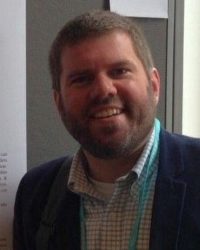
Dr. Habel’s work is in the area of political communication and public opinion. In 2013, he published “The Implications of Fictional Media for Political Beliefs” in American Politics Research, which investigates the consequences of fictional, entertainment media for belief in conspiracy theories. He remains interested in the media’s influence on conspiracy beliefs, including recent work […]
Pia Lamberty
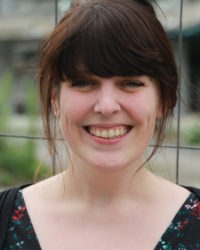
Pia Lamberty, M.Sc., is currently working as a Ph.D. student at the Department of Social and Legal Psychology at the Johannes Gutenberg University Mainz, Germany. Her main interests – and major research lines – are located in two subject areas: conspiracy mentality and psychological reactions to terrorist attacks. She aims to get a better understanding […]
Pranvera Tika

Pranvera Tika is a political scientist. Her main academic and research interests include the broad spectrum of the processes of democratization in the Balkans, right-wing extremism in Europe and in the Balkans, populism, comparative politics, euroscepticism, antisemitism, conspiracy theories, social movements, political parties, and globalization. She is completing her Ph.D. thesis at Panteion University in […]
Raluca Radu
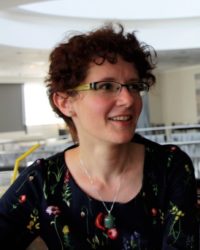
Raluca Radu is an associate professor at the Faculty of Journalism and Communication Studies, University of Bucharest, Romania. She is the director of the Journalism Department and teaches public communication ethics and media economy at bachelor’s, master’s, and doctoral level. Dr. Radu is the coordinator of the Romanian branch of the European Journalism Observatory and […]
Roland Imhoff
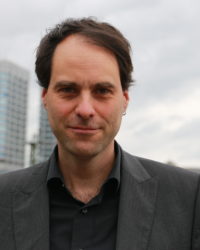
Prof. Dr. Roland Imhoff is interested in the role of what is labeled ‘conspiracy mentality’ in intergroup and interindividual attitudes and behavior. Based on the by now well established finding that people systematically differ in their general degree to either accept or reject diverse conspiracy theories and Moscovici’s terminology of a ‘conspiracy mentality,’ he has […]
Rumena Bužarovska

Rumena Bužarovska is an associate professor of American literature at the Ss. Cyril and Methodius University of Skopje. She is the author of a study on humor in contemporary American and Macedonian short fiction (What’s Funny: Theories of Humor Applied to the Short Story) and three short story collections (Scribbles, Wisdom Tooth and My Husband). […]
Silvia Mari
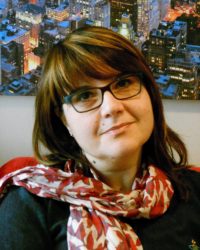
Silvia Mari is an Associate Professor of Social Psychology at the Department of Psychology, University of Milano-Bicocca, where she currently teaches Attitudes and Opinions and Community Psychology. She received her Ph.D. in Social Psychology from the University of Padova in 2006. She is interested in the effect of the internet and social media use on […]
Simona Stano
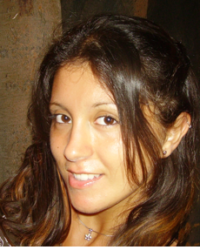
Simona Stano is a Tenure-Track Assistant Professor at the University of Turin (UNITO, Italy) and Visiting Researcher at New York University (NYU, US). She has been awarded a Marie Curie Global Fellowship for a research project (COMFECTION, 2019-2021) on the semiotic analysis of food communication. She also worked as Senior Researcher at the International Semiotics […]
Stef Aupers
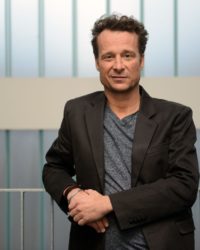
Stef Aupers is a cultural sociologist and works as professor of media culture at the Institute for Media Studies, Communication Sciences at Leuven University in Belgium. His work deals mostly with religion, spirituality, and re-enchantment in (post)secular Western societies. He supervised the NWO research project Conspiracy Culture in the Netherlands: Modernity and Its Cultural Discontents […]
Stephan Lewandowsky
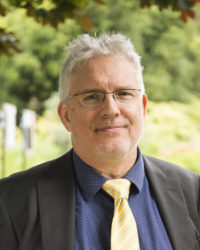
Professor Stephan Lewandowsky is a cognitive scientist at the University of Bristol. He was an Australian Professorial Fellow from 2007 to 2012, and was awarded a Discovery Outstanding Researcher Award from the Australian Research Council in 2011. He held a Revesz Visiting Professorship at the University of Amsterdam in 2012, and received a Wolfson Research […]
Stephen Armstrong

Stephen Armstrong is a journalist and author. He writes extensively for the Sunday Times, Wired, the Guardian and others on culture, technology and social change. He has written five books: The White Island; War plc; The Super Rich Shall Inherit the Earth; The Road to Wigan Pier Revisited; and The New Poverty – part of the Unreported Britain […]
Sylvain Delouvée
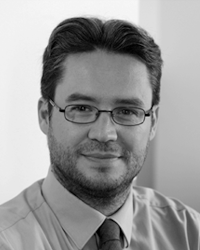
Sylvain Delouvée holds a Ph.D. in Social Psychology (Paris 5 University), and is currently an Associate professor (HDR) in Rennes 2 University (France). Formerly vice-president of his university, his research topics are focused on collective beliefs and social thought. He is particularly interested in behaviors and conduct known as irrational through conspiracy theories and rumours, […]
Sylvie Graf
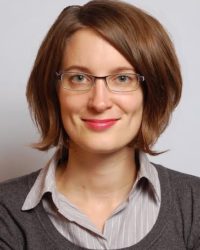
Dr. Sylvie Graf is a Marie Curie Fellow at the Institute of Psychology, University of Bern, Switzerland, and a Senior Researcher at the Institute of Psychology, Czech Academy of Sciences. Her area of expertise is the psychology of intergroup relations – she has pursued research on language, media influence, social cognition, and intergroup contact.
Tamás Scheibner
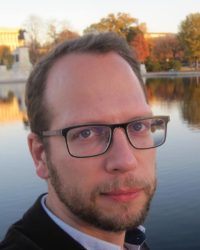
Tamás Scheibner is an assistant professor at the Institute of Cultural Studies and Hungarian Literature at Eötvös Loránd University of Budapest (ELTE). He is also a research fellow at the Institute of History at the Hungarian Academy of Sciences. He holds a Ph.D. in Comparative Literature (ELTE, 2012), and M.A. degrees in History from the Central […]
Tanjev Schultz
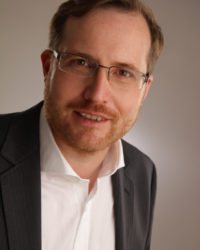
Tanjev Schultz is a Full Professor of Journalism at the Johannes Gutenberg University in Mainz, Germany. For more than ten years he has worked as an editor and reporter for Sueddeutsche Zeitung, Germany’s largest quality daily newspaper located in Munich. His journalistic work has won several prizes and focused on politics, education, extremism, terrorism, and […]
Theofilos Gkinopoulos
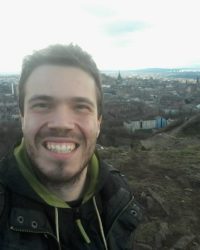
Theofilos Gkinopoulos is a researcher at the University of Surrey. He has completed his Ph.D. in Social Psychology at the University of Surrey. He has also received a B.Sc. in Psychology from the Panteion University of Social and Political Sciences in Athens. For his Ph.D., he looked at identity entrepreneurship process in mainstream and minority […]
Thomas Philipp
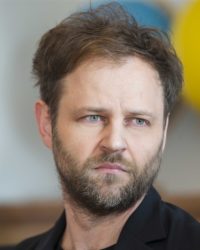
Thomas Philipp works as a scientist and artist in Linz, Austria. As one of the founders of the research institute LIquA (Linz Institute for Qualitative Analysis) and the art collective qujOchÖ, his work often operates at the interfaces between art, culture, and society as well as newly emerging phenomena in this context (e.g. hate speech […]
Todor Hristov
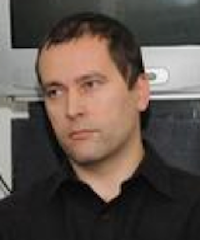
Todor Hristov teaches critical theory and cultural studies at the University of Sofia and sociology at the University of Plovdiv, Bulgaria. He has published six books on governmentality, social movements, and cultural studies as well as a number of papers on biopolitics, governmentality, critical political economy, new social movements, sociology of knowledge, and critical theory. […]
Tomas Balkelis
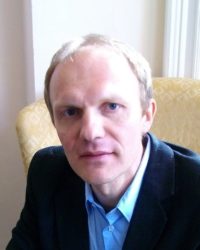
Dr. Tomas Balkelis is a senior research fellow at the Lithuanian Institute of History in Vilnius. He received his Ph.D. in History at the University of Toronto in 2004. He worked at the Universities of Manchester and Nottingham. During 2016, he was a visiting scholar at Stanford University. Throughout 2014 to 2016, he led a […]
Türkay Salim Nefes

Dr. Türkay Salim Nefes is a Research Fellow at the Sociology Department of the University of Oxford. He is also a William Golding Junior Research Fellow at the Brasenose College of the University of Oxford. His main research interests are the diffusion and impacts of conspiracy theories. Türkay has published his work on conspiracy rhetoric […]
Ute Caumanns
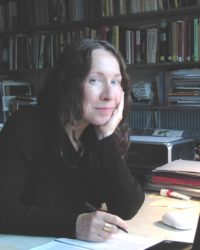
Ute Caumanns is a lecturer at the Department of History and Cultures in Eastern Europe at the Heinrich-Heine-Universität Düsseldorf, Germany. She teaches modern and contemporary Central-East European history, and visual history in a comparative European perspective. She co-edited two volumes on conspiracy theories: Verschwörungstheorien: Anthropologische Konstanten – historische Varianten (2001) and ‚Wer zog die Drähte?’ […]
Vassiliki Georgiadou

Vassiliki Georgiadou is an associate professor of political science at the Department of Political Science and History (Panteion University). She studied political science in Athens (Panteion) and in Münster/Germany (Institute of Politology) and holds a Ph.D. from the Faculty of Philosophy of the Westphalian Wilhelms University of Münster. Her research interests focus on far right […]
Veronique Campîon-Vincent

For thirty years Veronique Campion-Vincent has studied rumors and urban legends, adopting an anthropological approach. Together with Jean-Bruno Renard she co-authored three commented collections of urban legends in 1992, 2002, and 2014. She has published in English on rumors of wild animal releases (“Viper-Release Stories: A Contemporary French Legend.” A Nest of Vipers: Perspectives on […]
Victor Shnirelman
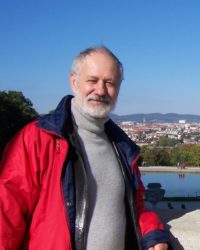
Victor A. Shnirelman, doctor in history, is a senior researcher at the Institute of Ethnology and Anthropology at the Russian Academy of Sciences in Moscow. His scholarly field is cultural anthropology. His research interests include nationalism, racism, ethnic conflicts, neo-paganism, cultural memory, politics of the past in the Soviet and post-Soviet world, eschatology, and theories […]
Viren Swami
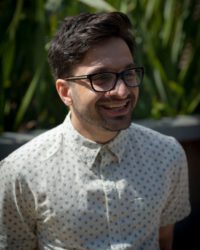
Viren Swami is a professor of social psychology at Anglia Ruskin University, UK and director of the Centre for Psychological Medicine at Perdana University, Malaysia. His research on conspiracy theories is based in the disciplines of social and differential psychology and is focused on understanding the antecedents and consequences of conspiracist ideation. In addition, a […]
Vladimir Bahna
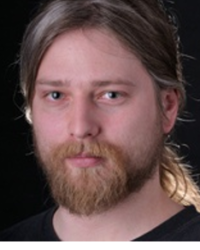
Vladimir Bahna is a Postdoctoral Researcher at the Institute of Ethnology at the Slovak Academy of Sciences. His research is centered around the cultural transmission of narratives, including conspiracy theories, and religious beliefs within the framework of cognitive anthropology. In his study of conspiracy theories, he focuses on cognitive processes which underpin the adoption, preference, […]
Vladimir Sazonov
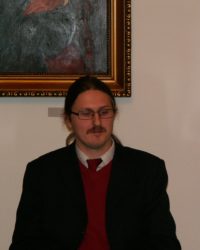
Vladimir Sazonov (Ph.D. in history) is a senior researcher at the Centre for Oriental Studies at the University of Tartu and analyst at the Estonian National Defence College. He has also worked at the Estonian National Defence College as an associate professor and researcher (2011–2016) and at the Baltic College as a lecturer (2016–2017). Vladimir […]
Vladimir Turjačanin
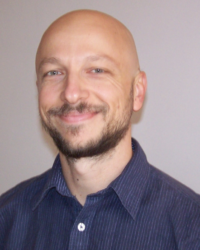
Vladimir Turjačanin works as a professor of social psychology at the Department of Psychology, University of Banja Luka, Bosnia and Herzegovina. His professional interests lie in the area of intergroup relations, ethnicity, nationalism, social identity, gender stereotypes, religious and ethnic prejudice, and political attitudes among youth. Among other publications, he published several books: Complex Social Identities […]
Vlado Šakić
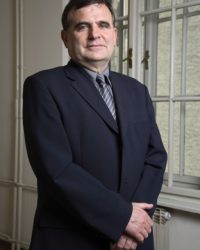
Vlado Šakić has been a scientific advisor and director of the Ivo Pilar Institute of Social Sciences in Croatia since 1998. He received his Ph.D. from the University of Zagreb in 1991 and he received the State Prize for Science (area of humanities) for the book Croatian Diaspora in 2005. His research is based in the […]
Yannis Stavrakakis
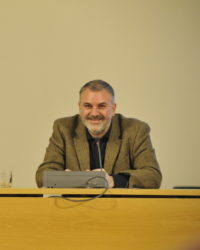
Professor Yannis Stavrakakis studied political science at Panteion University, Athens, and received his MA degree from the Ideology and Discourse Analysis Programme at the University of Essex, where he also completed his PhD under the supervision of Ernesto Laclau. He has worked at the Universities of Essex and Nottingham before taking up a position at […]
Zuzana Panczová
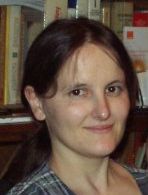
Zuzana Panczová is a research fellow at the Institute of Ethnology at the Slovak Academy of Sciences, where she also received her Ph.D. Her research interests lie in the study of narratives (rumors and conspiracy theories, contemporary legends, folk legends), stereotypes, discourse, and ideology. Currently, she is a member of several research projects including Wartime […]

